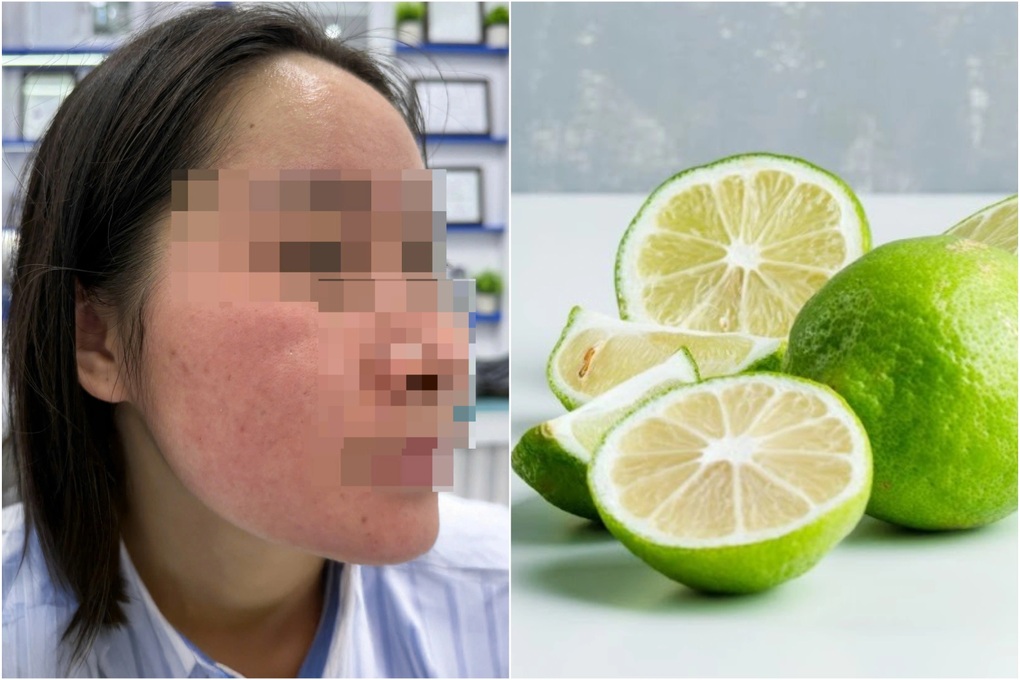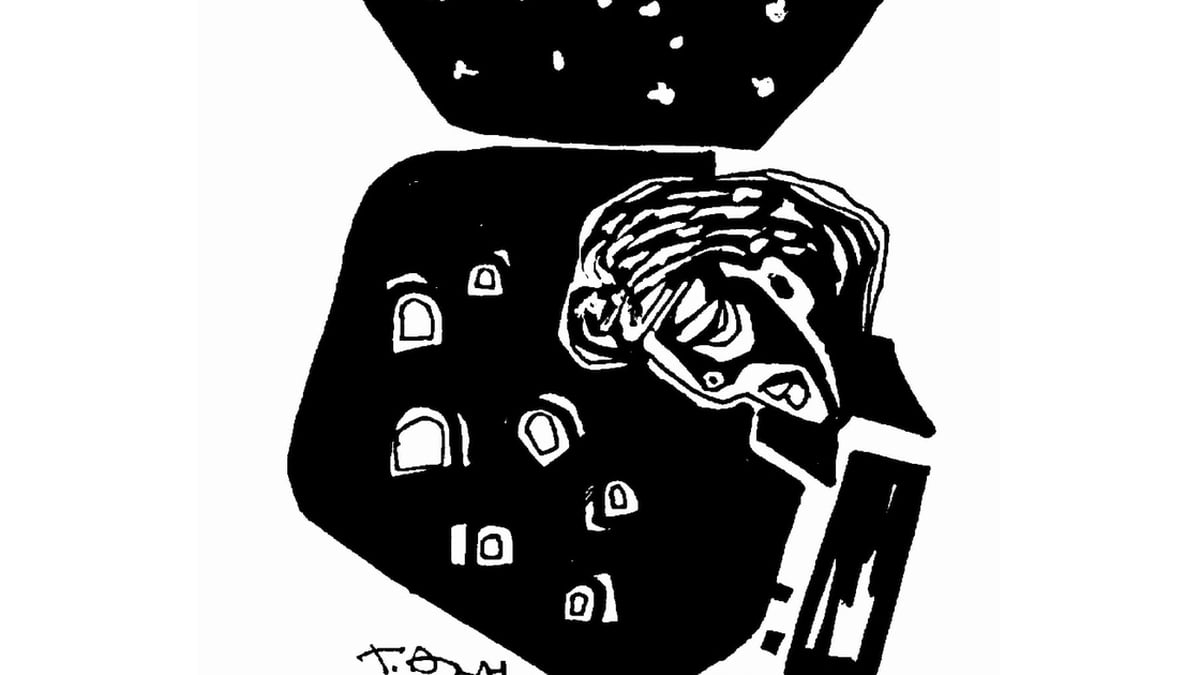Treat acne with lemon, red, swollen face, burning
NKĐ., 25 years old, living in Hanoi , has oily skin, often has acne on the forehead and chin. While surfing social networks, she came across an article sharing the experience of "treating acne without spending a lot of money" by applying fresh lemon juice directly to the acne every night.

Girl's face was red and swollen after learning the tip to treat acne with lemon (Photo: Doctor provided).
Thinking that lemon is a natural ingredient and that many people in the group supported it, D. tried it. Every day, she squeezed a little lemon and used a cotton swab to dab it on her pimples. At first, she felt a slight burning sensation but believed that it was a sign that it was working.
However, after 5 days, her face began to develop red patches, a burning sensation and a slight burning sensation, especially on her cheeks and chin. After 1 week, the red patches spread, her skin began to peel, swell and ache, making her worried and deciding to go to the doctor.
Skin damage due to acid from lemon and incorrect use
Directly examining the patient, Master, Doctor, and Associate Professor Nguyen Tien Thanh, a member of the Vietnam Dermatology Association, determined that this was a case of irritant dermatitis caused by contact with citric acid in lemon juice.
"Lemon is highly acidic. When applied directly to the skin, especially damaged skin such as acne, it can cause mild burns, irritation, and break down the skin's protective barrier. The condition will worsen if the patient is exposed to sunlight without using sunscreen," Dr. Thanh analyzed.
In addition, repeated daily use does not give the damaged skin time to recover, causing inflammation, prolonged pain, and the risk of post-inflammatory hyperpigmentation (PIH).
The patient was prescribed mild anti-inflammatory topical medications, skin recovery creams, avoiding exposure to sunlight and completely stopping all cosmetics. After 5 days of treatment, D.'s skin condition began to improve.
NKĐ. shared: "I simply thought that lemon used in cooking must be good for the skin, and I saw many people praising it so I followed suit. Now I have learned a profound lesson. Even though it worked, it will probably take a few more weeks for my skin to recover."
Why should lemon not be used on the face?
According to Dr. Tien Thanh, there are several reasons why lemon juice seems "benign" but is actually very dangerous when applied directly to the skin:
- Contains concentrated citric acid: Causes irritation, breaks down the skin's protective barrier, and disrupts pH balance.
- Can easily cause sunburn: Lemon makes the skin more sensitive to sunlight, which can cause photodermatitis.
- Not suitable for acne-prone or sensitive skin: Damaged skin areas will become worse when exposed to acid.
- No dosage control: Using natural remedies cannot determine safe concentrations like medically tested products.
Dr. Thanh emphasized: "All skin conditions, especially inflammatory acne, should be properly treated by a dermatologist."
Be careful with tips on social media
Currently, many Facebook, TikTok or YouTube groups share countless beauty and health tips, but not all content is verified by experts.
"Not everything that is natural is safe. Applying something to the face - especially a damaged face - requires professional knowledge. One mistake and you'll ruin your skin," Dr. Thanh added.
According to Dr. Thanh, this story is a warning to many young people who often believe in tips of unknown origin spread on social networks. The face is a sensitive area and is very vulnerable if handled incorrectly.
Source: https://dantri.com.vn/suc-khoe/boi-chanh-len-mat-tri-mun-theo-hoi-nhom-facebook-thieu-nu-mat-no-hoa-20250507070205965.htm


































































![[Photo] National Assembly Chairman Tran Thanh Man receives Chairman of Morocco-Vietnam Friendship Association](https://vphoto.vietnam.vn/thumb/402x226/vietnam/resource/IMAGE/2025/7/26/b5fb486562044db9a5e95efb6dc6a263)



































Comment (0)